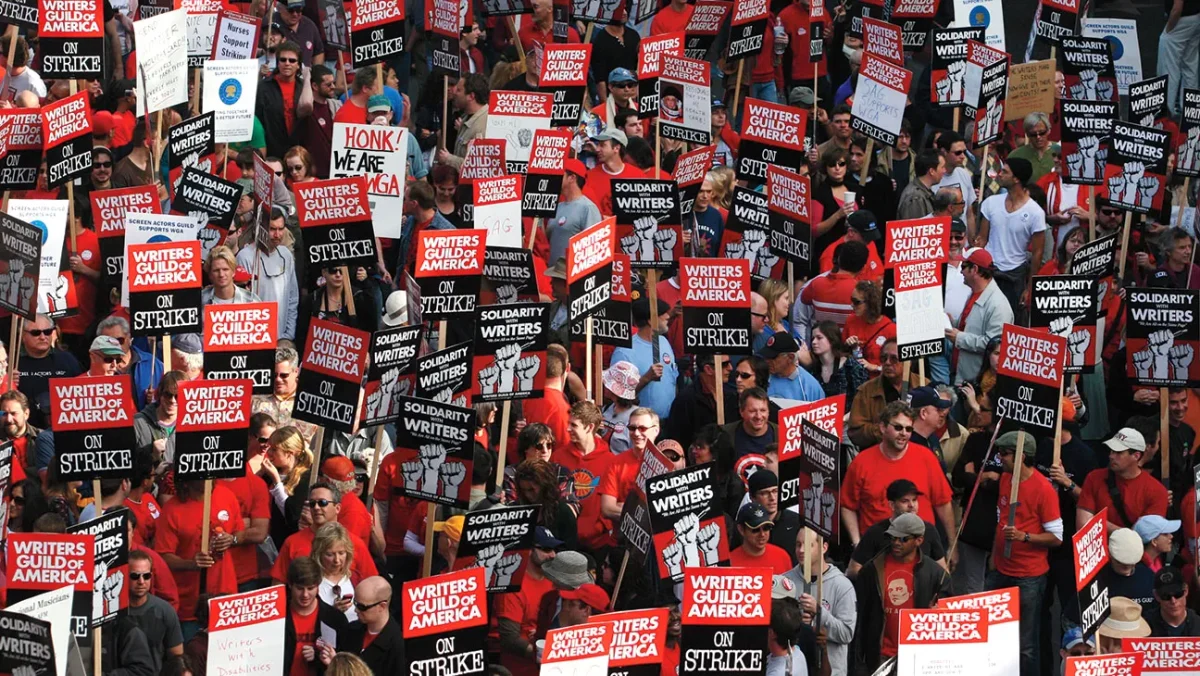A few days ago, I saw the new Tom Hanks movie directed by Robert Zemeckis, titled “Here.” It was a film that told many parallel stories, but the camera was only in one spot for the entire film.
To be honest, it was alright.
I personally thought the one-spot idea was clever, and their execution was top-notch. Despite having one camera angle for almost two hours, I was never really disconnected from the technical grandeur. What did bore me though, was the script. Essentially, the script was the equivalent of having an A in a class, and not trying on a project knowing it won’t affect your grade.
Thirty years ago, “Forrest Gump” was released. Tom Hanks starred as the titular character, with Robin Wright as his love interest, directed by Robert Zemeckis. This exact group of people made a piece of legendary cinema, one that propelled all their careers to incredible heights.
Watching “Here,” it was mind-boggling to see how harshly misused these artists’ talents were by this half-baked script. The crazy thing is, the screenwriter Eric Roth wrote this movie, and he also wrote the screenplay of “Forrest Gump.”
Leaving the theater, this one word was on my mind: “How?”
How did two phenomenal actors provide such lackluster performances? How did arguably one of Hollywood’s most innovative directors fail to successfully accomplish such a unique idea? How did a seasoned writer who made many masterpieces create such a cliched and painfully formulaic work?
The problem isn’t just subjective to this one film. It’s happening all across Hollywood. These days, ratings for TV shows are dropping, and rarely are movies surpassing an average rating of three stars out of five by critics and audiences alike.
In simple words, the film industry’s suffering greatly, but why?
You see, about a year ago, a bunch of writers left because they weren’t paid properly. When others tried to fill in for them, it left the entertainment business in shambles.
A Flashback
On May 2, 2023, 11,500 screenwriters for film and television, collectively known as the Writers Guild of America, went on strike and refused to come to work. Lasting for 148 days, the strike basically kept the film industry on pause. Many studios had to lay off massive portions of their staff, while others had to shut doors completely. For titan companies such as Warner Brothers and Paramount Global, their money loss was so extreme that it cut off cash flow to many of their departments.
In September of 2023, the strike had ended, but an estimated 6.5 billion dollars in the film industry were lost. Along with the heavy financial losses, many contracts between studios and the WGA were altered to be more fair in pay and creative rights.
Now, many people would just dismiss the strikes as a fight for fair payment, but in actuality, the protests occurred for many different reasons.
Where Did My Money Go?
In 2007, when the last WGA strike occurred, the strikes were also mainly focused on unfair payment of writers, but surrounded a central node: residuals.
Residuals is the income given to writers anytime their work is broadcasted on TV, and is continuously given for every time the work is replayed.
Here’s an example: let’s say you’re a writer for a new crime TV show, and after some hard work it is released. The series becomes a massive hit, and is continuously rerun on cable networks. Every time it is broadcasted again, you receive a small payment from the network, as it is your work that is being played. Once the window of which your show is played has ended, your income would be the original payment you received from the network to broadcast it, along with the small payments you got for each rerun.
If you want to learn more about how residuals affect writers, this video by Vox can enlighten you.
That is how residuals work. So, how does this relate back to the 2007 protests?
Studios slowly became more greedy over the money from the reruns, and gradually took up more of the income given from the network. Eventually, writers were only getting a fraction of the residuals promised, whilst studios were making big profit from those.
This angered the WGA, and as many expected, they went on strike. What happened was like I said before: the industry crashed, ratings plummeted, and a massive amount of finances were lost.
To prevent any further casualties, studios met up with the WGA committee and drafted a newer, more polished, and fairer contract where they would receive their proper payments. And it was all good…for a while.
Soon, the issues with residuals came back. But along with it came an even bigger problem.
ChatGPT’s Writing Movies Now? The Audacity
Ever since AI chatbots were invented, the whole world has been going crazy over it in both good and bad ways.
ChatGPT and other technologies, such as Dall-E and Midjourney, can be used to gather new information that was hard to find before, along with solving difficult problems. However, it can generate fiction at an alarmingly fast rate, allowing a path for students and professionals to take in order to get work done more easily.
This has stressed many high-profile individuals across many industries. In fact, shortly after ChatGPT went viral, leaders of the entertainment and technological industries alike came together to write an open letter asking for a six month halt on AI experimentation in order to understand the consequences of the invention.
If industry giants are stressed about this, then imagine how hard it must be for the lesser known writers.
The WGA had to worry about their returning problem of unfair payment, lack of proper residuals, and now the looming threat of AI over their heads. With all of these pressures, the association went on strike once again, this time on even harsher terms.
The 2023 Writers Strike is by far the most impactful of all, sheerly due to how widespread (and ongoing) the fall out has been. In addition to the grandeur of the protests was the timing.
Before the strike, many big-budget films and TV shows were being developed, and when it started, all of the plans were ruined. Creators had no writers to work with them, leading to no stories for the studios to adapt. This led to no productions occurring, finally resulting in a lack of media for audiences.
It was a domino effect. A massive one.
How The Strike Is Still Affecting Us
Due to the great effect of the protests, many of the projects released from May 2023 to the near future have really paled in quality and creativity compared to those released before then. What audiences and critics are mostly complaining about is the lack of intriguing stories that are being adapted for the silver screen; it just feels like old blockbusters are getting recycled again and again.
Many have also said dialogue is becoming increasingly terrible in movies. In fact, the majority of the films being released today are criticized for underwhelmingly or poorly written screenplays.
Will the situation get better? Yes, most hope it will, but a proper solution isn’t on the horizon of the near future.
Despite ending in September 2023, much of Hollywood is only just beginning to settle after the WGA Strike storm, releasing film after film to clear ideas off the table. The same goes for TV; many shows are either being canceled or ending early, in order to mitigate financial losses.
But in total, it just shows how writers are the most important to us. Writing is the backbone of our societies. Literature helped us develop complexity in our ideals and beliefs; if it wasn’t for that, moments that defined history, culture, and life as we know it, would be lost to time.
Moral of the story: don’t underestimate the wordsmiths.
And don’t watch “Here.” At least that’s what I think.
Sources
Wilkinson, A. (2023, April 27). AI should scare Hollywood writers — and everyone else. Vox. https://www.vox.com/culture/23700519/writers-strike-ai-2023-wga
Staff, L. A. T. (2023, May 1). Writers’ strike: What’s at Stake and How It Could Disrupt Hollywood. Los Angeles Times. https://www.latimes.com/entertainment-arts/business/story/2023-05-01/writers-strike-what-to-know-wga-guild-hollywood-productions
Maddaus, G. (2024, May 1). WGA Strike: One Year Later, Writers Face a Different Sort of Crisis. Variety. https://variety.com/2024/biz/news/wga-strike-work-shortage-crisis-writers-1235986452/
Rose, R. F., Ford, R., & Rose, L. (2018, May 17). 100 Days That Changed Hollywood: The Writers Strike, 10 Years Later. The Hollywood Reporter. https://www.hollywoodreporter.com/movies/movie-features/100-days-changed-hollywood-writers-strike-10-years-1111860/
Vox. (2023, June 7). How streaming caused the TV writers strike. YouTube.



